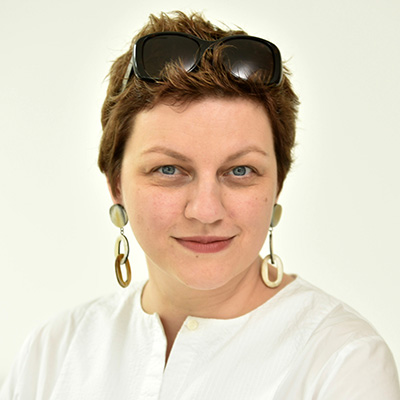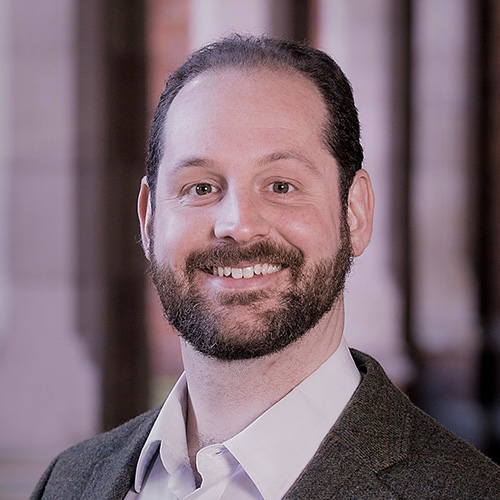Program
Keynote speakers

Prof. Milda Alisauskiene (Vytautas Magnus University, Lithuania)
Milda Ališauskienė is professor at the Department of Political Science at Vytautas Magnus University, Kaunas, Lithuania. Her research interests include religion and politics in the post-socialist society, religious diversity, religious fundamentalism and new religions. She has published more than 20 scientific articles on religion in contemporary Lithuania and the Baltic States and contributed to collective monographs and studies on social exclusion of minority religions and on the process of secularization in Lithuania. In 2011 she co-edited a volume “Religious Diversity in Post-Soviet Society” (Ashgate). In 2016 she was a visiting Fulbright scholar at the University of California in Santa Barbara Department of Religious Studies. In 2017 she was a guest editor of the special issue of the journal Nova Religio: Journal of Alternative and Emergent Religions about new religions in Eastern Europe. In 2015-2017 M. Ališauskienė served as a president for International Society for the Study of New Religions (ISSNR). In 2014-2018 she served as general secretary for International Study of Religion in Eastern and Central Europe Association (ISORECEA). Since 2015 she is a member of the executive board of the International Association for the History of Religions (IAHR). Since 2018 she is a member of the board of International Sociological Association Research Committee of Sociology of Religion (RC22).
Keynote Address Title: Religion on the Periphery in Central and Eastern Europe since the fall of the Berlin Wall: Diversity, Pluralism and Everyday Life
Abstract: Decades of being vanished from public life and thirty years after the fall of Berlin wall religion in Central and Eastern Europe has gone through transitions that influenced its development, relations with society, place and role in the society. Religion in contemporary societies of Central and Eastern Europe manifests in a wide range of forms. What distinguishes the region is the centrality of Christianity and the role of Christian churches – Roman Catholic or Orthodox – in the nation building processes and contemporary religion-state relations. The centrality of Christianity in CEE leaves other religious traditions of the periphery of public life. The research into religious discrimination in the region shows that Christian minority religions are discriminated most (Fox 2016). The idea of religious pluralism in the region seems to be a challenge for society, states and religions. What development has been in the region with regard of centrality of „national churches“ (Barker 1997) and their relations with other religious traditions and worldviews? In the first part of the lecture I will discuss the concept of periphery and its application for religion in CEE. This discussion will be followed by the discussion of developments in the religious diversity, religious pluralism and everyday practices since the fall of the Berlin Wall. As empirical background for the lecture will serve my research into religious discrimination among minority religions, religious LGBT and non-religious individuals.

Dr. Jonathan Lanman (Queen’s University Belfast, UK)
Jonathan Lanman’s research addresses two main areas in the scientific study of religion. Across both areas, he aims to integrate theories and methodologies from the social, cognitive, and evolutionary sciences with ethnographic and historical research. While his geographic area of interest is international, his work has focused on the North Atlantic world and, more recently, Japan.
His work on atheism and secularization aims to provide an account of why some individuals become theists and others become non-theists, why some nations have much higher proportions of non-theists than others, and why some non-theists engage in anti-religious social action. This research engages literature on cognitive biases, existential security, hypocrisy, threat detection, coalitionary psychology, and moral psychology and focuses on the United States, United Kingdom, and Scandinavia.
In collaboration with Lois Lee (UCL), Stephen Bullivant (St. Mary’s), and Miguel Farias (Coventry), he is continuing this research as a PI on a John Templeton Funded grant entitled “Understanding Unbelief” (£2.3m, 2017-2020), an international, and interdisciplinary programme of research on ‘unbelief’ around the world.
Dr. Lanman’s collaborative work on religious identity, ritual, and self-sacrifice aims to provide an account of the nature and catalysts of religious cohesion and the relative contributions of belief, ritual, values, and identity in explaining individual willingness to die for a religious group. This research engages literature on belief, ritual, memory, identity fusion, psychological kinship, sacred values, and martyrdom and is international with a focus on the United States and Europe.
In collaboration with Harvey Whitehouse (Oxford), William Swann (Texas), Michael Buhrmester (Oxford/Texas), and others, he has contributed to this research as part of a £3.2m project funded by the ESRC entitled Ritual, Community, and Conflict (2011-2017).
Dr. Lanman is Senior Lecturer in Anthropology and Assistant Director of the Institute of Cognition & Culture at Queen’s University Belfast.
Keynote Address Title: Who wants to be the centre of attention? From ‘centres and peripheries’ to interdisciplinary collaboration in the study of religion and its others
Abstract: To discuss centres and peripheries in religion and its study is to employ a powerful conceptual metaphor, and the meanings we glean from the use of this metaphor rely heavily on our evolved cognitive architecture. Yet, one will observe that the cognitive study of religion lies more on the metaphorical periphery of the academy than at its centre. Some will argue that this is very much where it belongs. Other, more enthusiastic scholars may claim that cognition (broadly defined) should be placed at the very heart of the study of all things human, including religion.
My argument will be that the language of centres and peripheries, while useful in describing inequalities, discrimination, and coalitionary dynamics, is less useful as a vision for how we might best work together to improve our understanding of religion, nonreligion, and human life. Based on my collaborative research in the cognitive science of religion and atheism, I will discuss two meta-theoretical strategies of science-humanities collaboration that aim to provide benefit for all involved parties. The first is Lawson & McCauley’s Interactionism model of interpretation and explanation. The second is Harvey Whitehouse and I’s use of Tinbergen’s 4 Questions in establishing a multi-disciplinary, holistic explanatory framework for human thought and action. I will then move from meta-theory to practice and methodology, describing how a team of sociologists, anthropologists, psychologists, and scholars of religion have worked together on the Understanding Unbelief programme (2017-2020) to try to avoid establishing a ‘centre-periphery’ relationship among our representative disciplines, methods, and questions and how this has benefited our research.
The conference program
PROGRAM OF 14th ISORECEA Online Conference / Olomouc, Czech Republic, April 15-17, 2021
| Thursday 15 | ||||
| 14.20 – 14.30 | Opening: Dorota Hall, President of ISORECEA and Tomáš Bubík, President of CASR | |||
| 14.30 – 15.45 | Plenary session I: Keynote lecture chaired by David Václavík
Jonathan Lanman: Who wants to be the centre of attention? From ‘centres and peripheries’ to interdisciplinary collaboration in the study of religion and its others |
|||
| 15.45 – 16.15 | break | |||
| 16.15 – 18.00 | Parallel session 1A – Room A
Religious people as a minority I Dorota Hall, chair
Maija Grizane: Religious Practices under the Soviet Regime: the case of the Old Believers in Latvia
Fadime Yilmaz: From periphery to the center: The change in the status of Imam Hatip Schools in Turkey
Olaf Müller: Religious fundamentalism among Muslims of Turkish origin in Germany: response to failed integration or cultural legacy? |
Parallel session 1B – Room B
Dominant and peripheral discourses on religion I Dinka Marinovič Jerolimov, chair
Eileen Barker: Fight, flight or freeze? Reactions to the law by minority religions
James T. Richardson: Theoretical Understandings of How and Why Minority Religions Sometimes Succeed in the Legal Arena
Barbara Theriault (with Konrad Pedziwiatr): The YouTube-Monk. A study in the life conducts of the young Polish middle class
András Máté-Tóth: The third wave of freedom |
Parallel session 1C – Room C
Non-believers and atheists in religious societies I Tomáš Bubík, chair
David Václavík: Crumbling Communities – the Disappearing Religion: Demographic Changes and Changes in the Socialization Model and their Influence on the “Atheization” of the Czech Borderland
Agata Rejowska: Humanist Weddings in Poland: The Various Motivations of Couples
Atko Remmel: (Non)religion and national narratives in a museum space
Dinka Marinović Jerolimov; Nikolina Hazdovac Bajic; Filip Fila: Comparative study of nonreligiosity: Croatia, Slovenia, and Czech Republic |
Parallel session 1D – Room D
Theories and methods at the periphery: Evolutionary theorizing, experiments, and modelling Aleš Chalupa, chair
Jan Krátký: Experiments in local context: Hindu puja alleviates anxiety
Radim Chvaja: Rituals as basic social acts: Testing the relationship between collective rituals and norm objectivity
Kateřina Koppová: Operationalization of group boundaries in research of religious prosociality
Jakub Cigán: Patterns of schism: Phylogenetic modelling of religions |
| 18:15 – 19:15 | ISORECEA General Assembly | |||
| Friday 16 | ||||
| 09.00 – 10.15 | Plenary session II: Book presentation (roundtable discussion) chaired by Tomáš Bubík, Atko Remmel and David Václavík
Tomáš Bubík, Atko Remmel, David Václavík (eds.), Freethought and Atheism in Central and Eastern Europe: The Development of Secularity and Non-Religion, Routledge 2020. Co-authors: Nikolina Hazdovac Bajic, Anita Stašulane, Milda Alisauskiene, Miroslav Tížik, Anna Mariya Basauri Ziuzina, Oleg Kyselov. |
|||
| 10.15 – 10.45 | break | |||
| 10.45 – 12.30 | Parallel session 2A – Room A
Religious people as a minority II Tomáš Bubík, chair
Zuzana Bártová: Between marginalisation and alternative lifestyle: a case study of Buddhist practitioners in the Czech Republic and France
Nicholas Lackenby: For many are called, and few are chosen: the marginality of Orthodox liturgical life in central Serbia
Cintia Csók: The Changing Role of School Pastors in the 21st Century
|
Parallel session 2B – Room B
Dominant and peripheral discourses on religion II Jakub Havlíček, chair
Matouš Vencálek: Beyond Peripheries: The Methodologies, Implications and Limitations of Studying Extraterrestrial Religions
Anita Stasulane: The Religious and the Secular: Examining Religion in Relation to History at the exhibition Latvia’s Century
Merili Metsvahi: Werewolf belief among the Estonian peasants in the 16th and 17th century
|
Parallel session 2C – Room C
Non-believers and atheists in religious societies II David Václavík, chair
Ondrej Štefaňak: The phenomenon of believing without belonging among Slovak youth (What does a youth who does not identify with any religion believe in?)
Krunoslav Nikodem: “It finally happened”: Secularization in European Catholic Countries
Nikolina Hazdovac Bajic: Non-religiosity in Croatia – Non-religiosity on the (semi-)periphery?
|
Parallel session 2D – Room D
Network Analysis, Computational Modelling and Simulation in the Study of Religions I Jakub Cigán, chair
Dalibor Papoušek (with Adam Mertel and Zdeněk Pospíšil): Archaeological Proxies in the Modelling of the Spread of Early Christianity in Its Formative Phases
Anestis Karasaridis: The Dynamics of the Growth of Christianity in the 2nd and 3rd Centuries CE: Designing a System Dynamics Model of the Influence of Pandemics on Early Christian Population
Aleš Chalupa (with Eva Výtvarová; Adam Mertel; Jan Fousek; Tomáš Hampejs): Did the Roman Army help Mithraism to Spread? Mithraism and Roman Military Infrastructure
|
| 12.30 – 14.00 | Lunch break | |||
| 14.00 – 15.45 | Parallel session 3A – Room A
Transformations of the New Religious Movements: from the periphery to the mainstream or disappearance I Gergely Rosta, chair
Dorota Hall: Keepers of truth: Christian minorities’ perspectives on history
Réka Szilári; Sára Heidl: Festival religion
Jakub Havlíček: Indigenous People of the Pacific Northwest Coast, Spirituality and Identity: Museums in Washington State
|
Parallel session 3B – Room B
Dominant and peripheral discourses on religion III Katarzyna Zielinska, chair
Vladimír Bahna: From peripheral and controversial religious practice into a highlight of regional religious life: The Marian pilgrimage site in Turzovka
Maja Kaninska: Religious discourse – legitimacy in the socio-political system of a devaluing state
Olga, Breskaya: Role of Religion and Perceptions of Religious Freedom
|
Parallel session 3C – Room C
Scientific Atheism: Soviet Scholarship Mainstream or Its Periphery? Atko Remmel, chair
Stefan Ragaz: Provincializing scientific atheism
Oleg Kyselov: Sociology as a servant of atheism: sociology of religion in Soviet Ukraine
Tatiana Folieva: From «Moscow Radio University» to «Central Open Anti-Religious Institute»: system of atheistic education in the 1930’s.
Anna Mariya Basauri Ziuzina: “We quitted religion…”: Female Voices in Soviet Deconversion Narratives
|
Parallel session 3D – Room D
Network Analysis, Computational Modelling and Simulation in the Study of Religions II Dalibor Papoušek, chair
Tomáš Glomb; Vojtěch Kaše: The Cultural Evolution of Moralizing Religions in the Ancient Mediterranean Project (CEMRAM): A Distant Reading Approach
David Zbíral: Dissident Networks Project (DISSINET): Bridging Between Medieval History and Innovative Research Methods
Jana Valtrová: Exploring Misunderstandings within Interreligious Communication: Christian Material Culture and the Medieval Mongols
|
| 15.45 – 16.15 | break | |||
| 16.15 – 18.00 | Parallel session 4A – Room A
Transformations of the New Religious Movements: from the periphery to the mainstream or disappearance II Dinka Marinovič Jerolimov, chair
Michal Puchovský: (In)visible religion in music: Pagan motives in music of Moravian Pagan musician Tomáš Kočko
Andrzej Kasperek; Karolina Maria Hess: On the periphery of religion: the case of Kazimierz Stabrowski and the Warsaw esoteric milieu
Irena Saleniece: Religious life under Communist totalitarianism: the case of Latvia (1940s-1980s)
|
Parallel session 4B – Room B
Dominant and peripheral discourses on religion IV Olaf Müller, chair
Katarzyna Zielinska: Doing Gender in the Polish Catholic Missions in Sweden
Silvie Kotherová: The controversy of knowledge-making about Buddhism
Kinga Povedák: ’Rocking the church’ – The sound of religion from the periphery
|
Parallel session 4C – Room C
Exposing the explicit and implicit in religions I Oleg Kyselov, chair
Edit Márta Révay: Edging from a privileged position
Victoria Vitanova-Kerber: Religious policy on the edge of the Soviet Union: Esotericism in 1970s Bulgaria
Gergely Rosta: Religious Change in Hungary and its Mechanisms
Wojciech Sadlon: Paradoxical Tentions in Religious Identity: Living out Sexuality in Consecrated Life in Poland
|
Parallel session 4D – Room D
Everyday life on the periphery of religious studies Nikolina Hazdovac Bajic, chair
Michaela Žáková: “Cricket is a religion, and I am an extremist!”: meanings of the sport for the minorities in the Czech Republic
Milan Fujda (with Michaela Ondrašinová; Miroslav Vrzal): Making new home: Friendship and the community of faith among expats in Brno
Matej Paulík: Alternative spiritualities as cultural resources for reframing unusual experience
Remigiusz Szauer: Between the need for sensations and attachment to tradition. The specificity of religious experience among the youth of Central Pomerania in Poland in the face of the phenomenon of peripheralisation of religion
|
| Saturday 17 | ||||
| 09.00 – 10.15 | Plenary session III: Keynote lecture chaired by Atko Remmel
Milda Alisauskiene: Religion on the Periphery in Central and Eastern Europe since the fall of the Berlin Wall: Diversity, Pluralism and Everyday Life |
|||
| 10.15 – 10.45 | break | |||
| 10.45 – 12.30 | Parallel session 5A – Room A
Religious diversification and social exclusion Jana Valtrová, chair
Adam Gajdoš: Church life/live in pandemic times: traditional and emergent boundaries of membership in Czech Christian communities
Pavol Minárik: Bringing rational choice to the study of religion in communist and post-communist settings
Anna Szwed: “If you don’t change anything, nothing will change”. Agency among religious women in a Roman Catholic women’s community in Poland |
Parallel session 5B – Room B
Dominant and peripheral discourses on religion V Katarzyna Zielinska, chair
Robert T. Ptaszek: The Marginalized Queen. A few remarks about the need and opportunities for philosophical studies on spirituality, religions and religious movements
Rita Hegedűs: Believers on the periphery: Christians in Hungary who do not support the right-wing government
Maria Sroczyńska: Polish Youth in Search for the Sacred – Two Minorities: Deep Believers and Non-believers |
Parallel session 5C – Room C
Exposing the explicit and implicit in religions II Jakub Havlíček, chair
Sławomir Mandes: The gender gap in religiosity in East and Central European countries
Gabriella Pusztai: Religious socialization of students in qualitative and quantitative approach
Zsuzsanna Demeter-Karászi: A cross-sector comparison of student’s religiosity
Anett Hrabéczy: Religious Affiliation and Persistence among University Students with Disabilities |
Parallel session 5D – Room D
Everyday life on the religious periphery Silvie Kotherová, Chair
Zsófia Kocsis: Term-time work and religiosity among higher education students
Maria Roginska: On the periphery of the universe. Cosmic (ir)religious imaginary of the post-Soviet natural scientists
Giuseppe Maiello: On Being a Trans man in the Czech Pagan Community |
| 12.30 – 14.00 | Lunch break | |||
| 14.00 – 14.15 | Closing: Dorota Hall and Tomáš Bubík | |||
| 14.15 → | Informal meeting | |||

